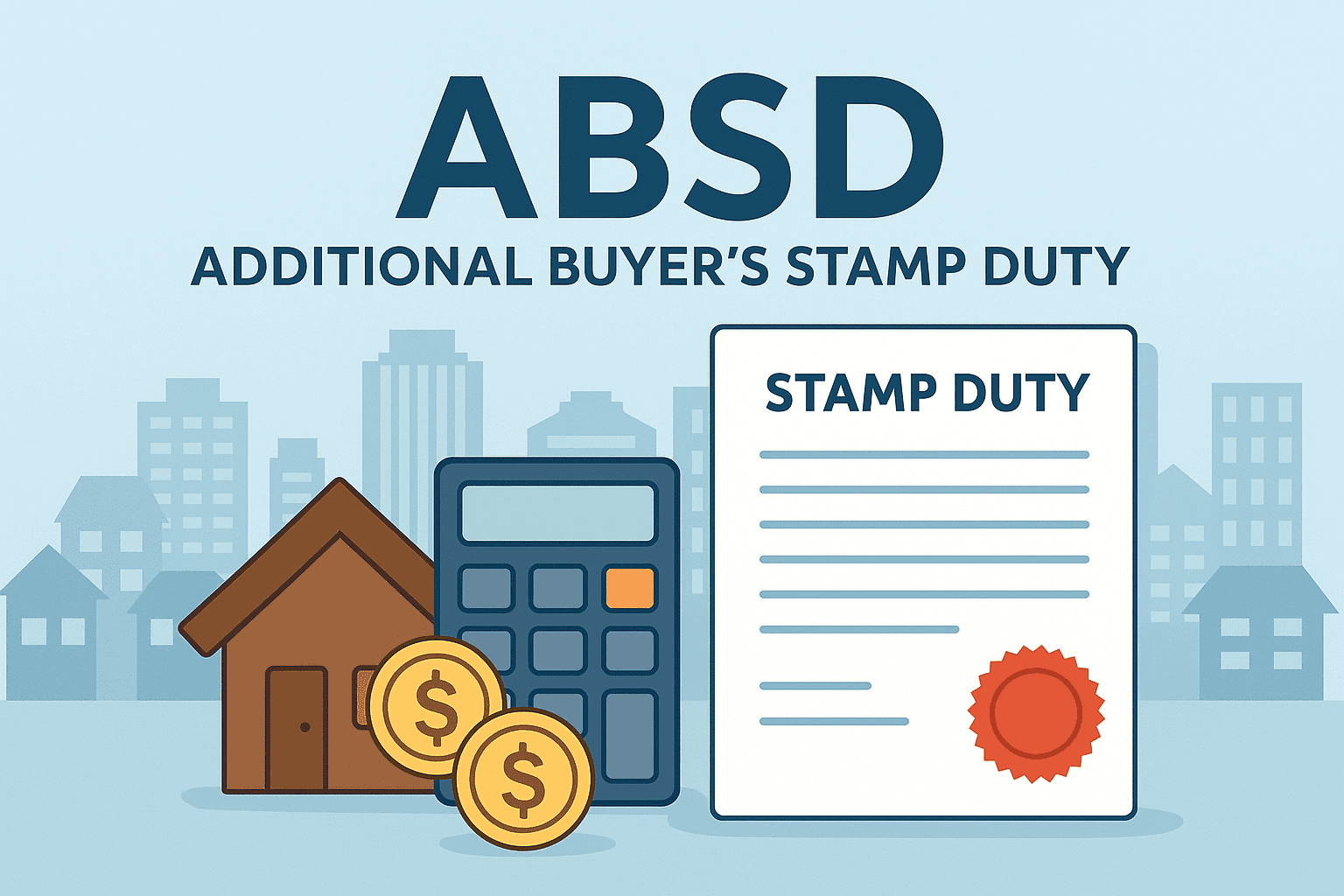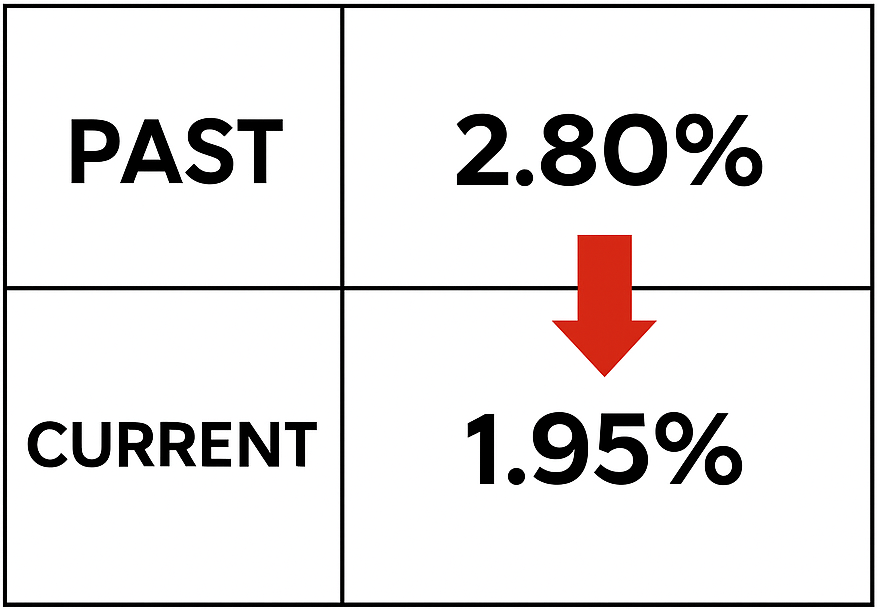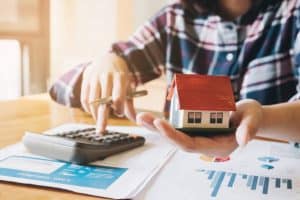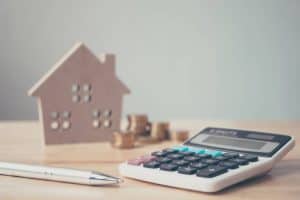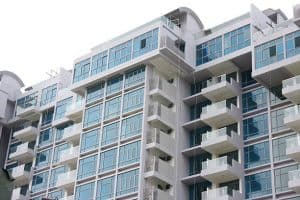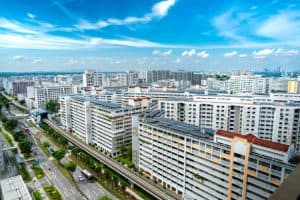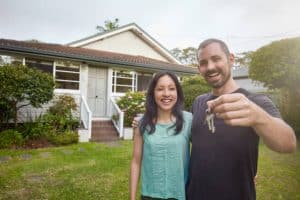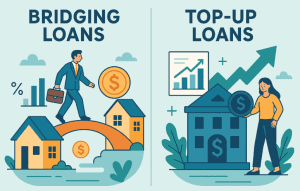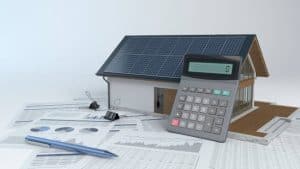If you’re planning to buy property in Singapore, understanding ABSD rates in Singapore is crucial. The Additional Buyer’s Stamp Duty (ABSD) affects everyone—from first-time homebuyers to seasoned investors—and the rates can significantly impact your overall property costs. With recent updates from IRAS and changing market conditions, staying informed about the ABSD rates for Singapore Citizens, PRs, and foreigners is more important than ever.
In this blog post, we’ll unpack the latest ABSD rates, exemptions, and strategies to help you navigate your home buying journey. Whether you’re eyeing your first HDB flat or investing in a luxury condo, you’ll find everything you need to know about Singapore’s ABSD —plus expert tips and insights along the way. Let’s dive in!
Understanding ABSD: Purpose and Impact

Understanding how ABSD in Singapore works is key for anyone planning to buy a home or invest in property. This tax plays a big role in shaping the property market and can affect your overall housing budget significantly.
Expert Tip: For a deeper look at how ABSD compares with other stamp duties like BSD, check out our Buyer’s Stamp Duty (BSD) Calculator.
What is Additional Buyer’s Stamp Duty (ABSD) and why was it introduced?

ABSD is a tax that the Singapore government introduced in 2011 to cool the property market and discourage speculative buying. It ensures that locals have fair access to housing by moderating demand, especially from investors and foreign buyers.
Always check the latest ABSD rates with trusted sources like the IRAS website, as they can change and impact your home purchase plans.
How does ABSD affect different buyer profiles in Singapore?

ABSD applies differently based on your residency status:
- Singapore Citizens: Pay ABSD from their second property onwards.
- PRs: ABSD applies to the first and subsequent properties.
- Foreigners: Pay ABSD on all residential property purchases.
This means that the ABSD rate in Singapore can significantly influence your property buying strategy, especially if you’re planning to invest. For some, refinancing might be a smart move to manage costs.
Learn more about refinancing your home loan to see how it could offset ABSD costs.
What are the objectives of ABSD in the property market?

ABSD aims to:
- Curb speculative demand.
- Stabilise property prices.
- Ensure fair access to housing for locals.
From what I’ve seen, ABSD has been quite effective in keeping property prices from overheating—but it’s also made strategic planning even more crucial for property investors and homeowners alike.
If you’re considering refinancing or planning your next purchase, talk to a mortgage advisor to ensure you’re making the right move.
Current ABSD Rates: A Detailed Breakdown

With property prices on the rise, knowing the ABSD rates in Singapore is more important than ever. These rates directly impact your total purchase cost and should be factored into your financing plans.
What are the ABSD rates for Singapore Citizens, Permanent Residents, and Foreigners?

Here’s a quick breakdown of ABSD rates in Singapore:
ABSD Rates in Singapore 2025 by Buyer Profile
| Buyer Profile | ABSD Rate (as of 2025) |
|---|---|
| Singapore Citizens (1st property) | 0% |
| Singapore Citizens (2nd property) | 20% |
| Singapore Citizens (3rd property onwards) | 30% |
| Singapore PRs (1st property) | 5% |
| Singapore PRs (2nd property onwards) | 30% |
| Foreigners | 60% |
These rates apply to both private and HDB residential properties. Keep in mind that these rates can significantly impact affordability, especially for those considering multiple investments.
How do ABSD rates vary for entities and trusts?

Entities and trusts are subject to the highest ABSD rates, currently set at 65%. This is designed to deter bulk purchases by developers and foreign investors through shell companies or trusts.
If you’re thinking about using a trust to buy property, consult a mortgage advisor to understand the implications fully.
Are there any recent changes to ABSD rates?

In 2023, the government raised ABSD rates for foreigners and entities to cool the market further. Since then, no additional changes have been announced, but the rates remain high as a measure to stabilise the property market.
Stay updated with the latest changes on the IRAS website. It’s always smart to check for new announcements before committing to a purchase.
ABSD Implications for Different Buyer Profiles

Understanding how ABSD in Singapore applies to different types of buyers is key to planning your property purchase. Let’s explore what this means for first-time homeowners, investors, and foreigners.
How does ABSD apply to first-time homebuyers in Singapore?

First-time Singapore Citizen homebuyers are exempt from ABSD on their first residential property. This makes it easier to enter the property market without worrying about extra taxes. However, ABSD rates apply to second and subsequent properties, which can impact your plans if you’re upgrading or investing later.
Here’s what you should keep in mind:
- First residential property: 0% ABSD for Singapore Citizens.
- Second property: ABSD starts at 20%.
- Third property: ABSD can go up to 30%.
If you’re planning your next move, compare home loan rates and consider how ABSD will affect your repayments. Our article on home loan rates in Singapore is a helpful place to start.
What should property investors know about ABSD?

For property investors, ABSD is a key factor that can affect overall returns. Investors should know:
- Singapore Citizens: ABSD applies from the second property onward.
- PRs: Pay ABSD on their first and subsequent properties.
- Foreigners: ABSD applies to every property.
- Entities and trusts: Face the highest rate at 65%.
Some investors look at strategies like decoupling or refinancing to reduce their ABSD burden.
How does ABSD impact foreigners purchasing property in Singapore?

Foreigners pay ABSD on every residential property purchase at a hefty 60%, which makes investing here significantly more expensive.
Here’s what else to consider:
- Additional costs like Buyer’s Stamp Duty (BSD) stack up with ABSD.
- You can use our BSD calculator to estimate your total tax liability.
- Always verify the latest ABSD rates and rules via the IRAS website before making any decisions.
Being aware of these implications helps you plan your property journey more confidently, whether you’re a local or an overseas investor.
ABSD Exemptions and Remissions: Who Qualifies?
While ABSD in Singapore generally applies to most property buyers, certain exemptions and remissions can help you lower your tax bill. Let’s dive into who qualifies and how these benefits work.
What are the criteria for ABSD exemptions in Singapore?

ABSD exemptions are limited but can make a huge difference. The main scenarios where ABSD does not apply include:
- Foreigners buying under Free Trade Agreements (FTAs) — specifically for nationals from the US, Switzerland, Norway, Iceland, and Liechtenstein.
- Public Housing Takeover: When property ownership is transferred between related parties under certain conditions.
How can married couples benefit from ABSD remissions?

Married couples, where at least one spouse is a Singapore Citizen, can benefit from ABSD remissions when they sell their first property within six months of purchasing a second one.
This helps homeowners upgrade to a bigger home without the financial burden of ABSD on their second property.
Key points to note:
- At least one spouse must be a Singapore Citizen.
- The first property must be sold within six months of buying the second one.
- The remission applies only to owner-occupiers, not investors.
If you’re planning to upgrade or buy a second home, check out our refinancing guide to see how you can optimise your mortgage repayments alongside ABSD planning.
Are there specific remissions for housing developers and trusts?

Yes, but they come with conditions. Housing developers may qualify for ABSD remission if they:
- Complete and sell all units within a specified timeframe (usually five years).
- Satisfy specific eligibility requirements from the authorities.
For trusts, ABSD remission is more limited. Transfers into a living trust typically attract the highest ABSD rate (currently 65%), with no remission—though exceptions can apply in very specific circumstances.
Because these cases are complex, it’s wise to speak with a mortgage advisor or legal professional to understand the details before making any decisions.
Strategies to Legally Minimize ABSD Liability
While ABSD in Singapore is a significant cost for many buyers, there are legal ways to reduce your liability. Let’s look at the strategies homeowners and investors can consider.
What legal methods can reduce ABSD obligations?

Although ABSD is designed to discourage speculative buying, some legal strategies can help ease the tax burden:
- Decoupling: Removing one spouse’s name from a property so they can buy another property as a first-time buyer.
- Using a trust or entity: Some buyers consider purchasing property through a trust or company structure.
Timing and sequencing: Selling an existing property before buying a new one can help qualify for remissions in some cases.
How does decoupling ownership help in ABSD planning?

Decoupling is a popular strategy where one spouse sells their share of a jointly owned property to the other, freeing up their name to buy a second property as a first-time buyer—thus avoiding ABSD.
Here’s how it works:
- One spouse buys out the other’s share of the existing property.
- The spouse who sold their share is now free to buy a new property without paying ABSD on their first purchase.
- This method can help families invest in additional properties without triggering higher tax rates.
However, decoupling comes with legal and financial considerations, including potential costs like legal fees and Buyer’s Stamp Duty (BSD). Check out our BSD calculator to estimate additional costs involved.
Can purchasing under a trust or entity structure mitigate ABSD?

Some buyers look at setting up a trust or using a company to buy property. However, this usually attracts the highest ABSD rate—65%—making it more expensive than buying as an individual.
Here’s what you need to know:
- Trusts and companies face stricter rules and higher tax liabilities.
- Financing can be more complicated, with some banks imposing stricter conditions.
For most buyers, this route rarely saves money. If you’re exploring financing, it’s wise to compare housing loan rates Singapore to ensure you’re getting the best deal on your mortgage.
ABSD Payment Procedures and Deadlines

Once you’ve decided on a property, understanding how and when to pay your ABSD in Singapore is essential to avoid unnecessary costs and penalties.
When is ABSD payment due after purchasing a property?

ABSD is due within 14 days of signing the Sale and Purchase Agreement or within 30 days if the agreement is signed overseas. Missing this deadline could result in penalties and additional interest charges.
If you’re budgeting for your purchase, it’s helpful to factor in your overall home loan rates Singapore. Check out our latest home loan rates to see how your monthly payments and total costs stack up.
What are the accepted payment methods for ABSD?

There are several ways to pay your ABSD:
- Internet banking through participating banks.
- AXS stations for quick, in-person payments.
- IRAS e-Stamping Portal for online transactions.
When planning your payments, remember that ABSD can affect your mortgage planning. Our mortgage loan repayment calculator can help you estimate how your tax obligations impact your monthly mortgage payments.
What penalties apply for late ABSD payments?

Missing the payment deadline comes with significant penalties, including:
- A 5% penalty on the unpaid ABSD amount.
- An additional 1% per month interest charge until the duty is paid.
These penalties can add up quickly, making timely payments crucial. For guidance on navigating ABSD rates Singapore and planning your payments effectively, visit our homepage to explore mortgage solutions tailored to your needs.
ABSD’s Role in Singapore’s Property Market Stability

ABSD in Singapore plays a significant role in maintaining a stable property market, ensuring that housing remains accessible to Singaporeans while managing investor demand.
How has ABSD influenced property prices over the years?

Since its introduction in 2011, ABSD has helped moderate property price growth by curbing speculative demand. Prices have become more stable, with fewer sharp increases compared to the pre-ABSD era.
Key trends:
- 2011–2013: Introduction of ABSD saw a noticeable dip in foreign investment, helping to cool the market.
- 2018–2023: Additional rate hikes further stabilised prices, especially in the luxury and investment segments.
ABSD remains a key policy to balance property demand and supply.
What is the government’s stance on ABSD as a cooling measure?

The government views ABSD as an essential tool for ensuring housing affordability and curbing excessive investor activity. It’s designed to:
- Keep property prices sustainable.
- Prioritise owner-occupiers over speculative buyers.
- Stabilise the broader economy by preventing property bubbles.
For homebuyers considering a second property, it’s crucial to understand how ABSD affects your affordability. Our mortgage loan repayment calculator can help you plan your monthly payments alongside your tax obligations.
How does ABSD compare to other property taxes like BSD and SSD?

ABSD is just one of several taxes that apply when buying property in Singapore. Here’s how it stacks up:
- Buyer’s Stamp Duty (BSD): A tax on all property purchases, calculated based on the property’s value.
- Seller’s Stamp Duty (SSD): Applies if you sell a property within a certain holding period, designed to curb flipping.
- ABSD: Additional tax for buyers based on residency status and the number of properties owned, specifically to dampen speculative demand.
To estimate your total taxes, try our BSD calculator—it’s a quick way to understand your full tax obligations.
Future Outlook: Potential Changes to ABSD Policies

Looking ahead, it’s important to consider how ABSD in Singapore might evolve. Let’s explore potential changes, economic factors, and what property buyers should expect in the coming years.
Are there discussions about revising ABSD rates in the near future?
As of now, there are no confirmed announcements of immediate ABSD rate changes. However, the government regularly reviews property measures to ensure a stable and affordable housing market. Historically, adjustments have been made to respond to market trends, so it’s always wise to stay updated.
To stay updated on how shifts in ABSD rates might impact your property budget, check out our latest mortgage rates in Singapore for a clearer picture of potential costs.
How might economic factors influence ABSD adjustments?

Several factors can influence ABSD policy changes:
- Global economic trends, such as interest rate movements and inflation.
- Local housing demand, particularly among investors.
- Foreign investment levels, which can impact supply and prices.
These factors help shape government policy decisions. Buyers should keep an eye on official channels and reputable news outlets for any updates.
Comparing housing loan rates Singapore can also help you plan your financing strategy as policies evolve.
What should buyers anticipate regarding ABSD in the coming years?

In the near term, ABSD is expected to remain a key measure to manage housing affordability. Buyers should be prepared for potential tweaks in response to market shifts.
A few tips:
- Stay updated on any ABSD changes that may affect your buying plans.
- Factor in ABSD costs when budgeting for your next property.
- Use tools like our mortgage loan repayment calculator to plan your finances effectively.
For a more detailed understanding of ABSD’s impact on different buyer profiles, explore our ABSD rates breakdown, which can help you align your strategy with the latest policies.
Conclusion: Making Informed Decisions About ABSD in Singapore

Navigating ABSD in Singapore doesn’t have to be overwhelming. By understanding how ABSD rates work, who qualifies for exemptions, and what strategies can help manage costs, you can make more confident property decisions.
Before you commit to any purchase, always compare home loan rates Singapore and use tools like our mortgage loan repayment calculator to plan your budget effectively.
If you need expert guidance on ABSD planning or mortgage options, don’t hesitate to contact us—our experienced team is ready to help you make your next property move a smooth and financially sound one.

